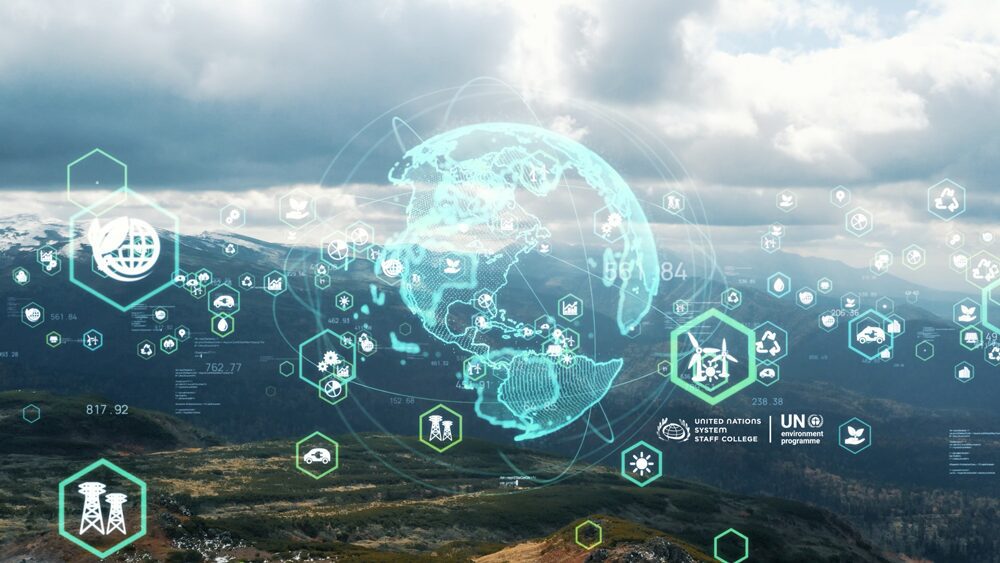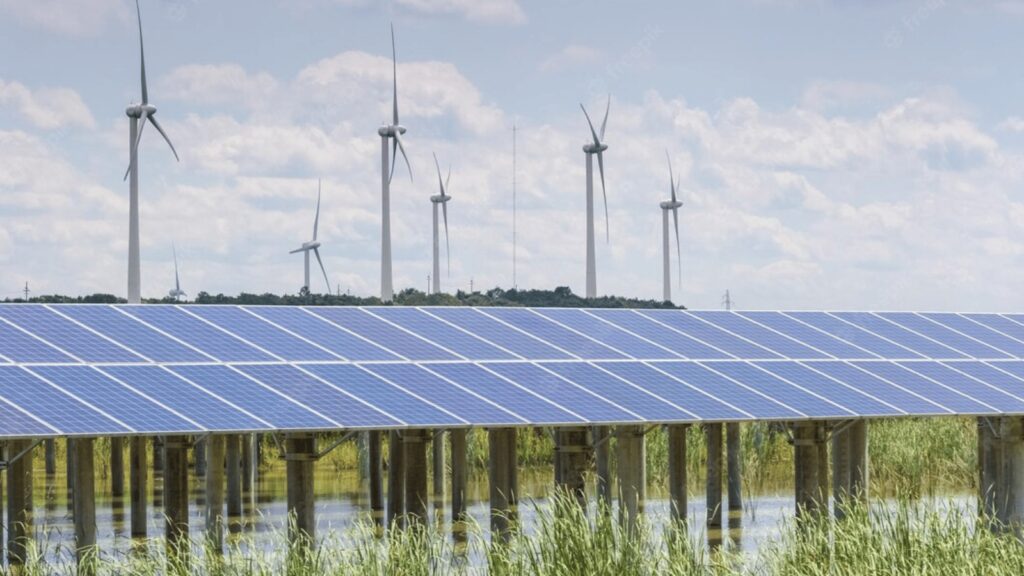FREE Sustainability Courses from The United Nations you will not regret taking in 2023! Do these courses to change your life and career in next 6 months !
The United Nations offers massive amount of sustainability courses that are accessible for anyone for free. Time to obtain sustainability expertise proficiency in the Sustainable Development Goals by taking these free courses offered by the United Nations.
RELEVANT SUSTAINABLE GOALS



1. Environmental SDG Indicators
This course provides an overview of the importance of monitoring the environmental dimension of development, the linkage with existing statistical frameworks and how to use environment statistics in decision making. It also provides a brief overview of all 25 SDG indicators under UNEP custodianship.
This e-learning course is a self-paced course with individual 10 modules developed by the United Nations Environment Programme (UNEP), the United Nations Statistical Institute for Asia and the Pacific (UNSIAP) and the United Nations Institute for Training and Research (UNITAR).
2. The Net-Zero Standard
In this 20-minute, interactive e-learning course delivered by the UN Global Compact Academy and the Science Based Targets initiative, you will:
- Discover how the Net-Zero Standard provides a common, robust, and science-based understanding of net-zero
- Receive guidance on how to set science-based net-zero targets consistent with limiting global temperature rise to 1.5C.
- Align your company’s near- and long-term targets with climate science.
This course is offered by UN Global Compact.
3. My Sustainable Living Challenge
The “My Sustainable Living Challenge” takes learners on a three-week journey in an immersive environment, in which they learn about sustainability, system change, and the impact of their lifestyles across the domains of food, housing, mobility, consumption and leisure by participating in engaging weekly challenges.
Every week two challenges present thought-provoking content prepared in collaboration with experts from the UN Environment Programme, in an accessible and fun way.
The weekly activities nudge participants to put their learning into practice through real-life actions and solidify commitments and accountability by sharing expertise and ideas with peers.
Register here
4.Circular Economy and the 2030 Agenda
With less than a decade to 2030, it is evident that ‘business as usual’ will not help us to achieve the Sustainable Development Goals (SDGs). Systems-based approaches along with a strong commitment to deep-rooted transformations and actions are vital to the reduction of humanity’s footprint on our planet. Our resources are finite and the principles and practices of the circular economy will be catalytic in creating goods, processes and ecosystems that are restorative and regenerative by design.
The course will focus on ‘how’ and ‘why’ circular economy principles will be critical to achieving the goal of the 2030 Agenda – sustainable development for all.
This engaging six-week online course will focus on harnessing circular economy principles and systems-based approaches to explore ways in which we can redesign our systems, products and services to allow us to achieve sustainable living for all, within planetary limits.
Course registration opens on 15 May 2023 and closes on 18 August 2023.
This course has been created in collaboration with United Nations Environment Programme.
5. Digital4Sustainability Learning Path
Despite the power technology affords us, despite the heatwaves and hurricanes, and despite the growing alarm, we are failing to leverage the potential of digital technologies to make our world more sustainable, equitable and peaceful. Governments, businesses, civil society and individuals have choices to make in harnessing and managing new technologies to safeguard the environment and human freedoms.
The Digital4Sustainability Learning Path has been developed through a joint partnership between UNEP and the UN System Staff College (UNSSC) in collaboration with GIZ, the EU, the Coalition for Digital Environmental Sustainability (CODES) and the Office of the UN Technology Envoy. The CODES Action Plan for a Sustainable Planet in the Digital Age has inspired the content.

Each module requires 3-4 hours of time and can be completed asynchronously following a self-paced learning method.
6. Resource Efficiency
Did you know that, on average, the Asia-Pacific requires almost double the material resources per US$ of economic output than the world average, making it one of the most resource inefficient regions of the world?
This comes at great environmental and economic costs as material, energy, water, and land resources become ever scarcer and whose exploitation and misuse contributes greatly to climate change, land degradation, and other environmental catastrophes. However, this does not need to be the case. By understanding the principles of Resource Efficiency and how to measure and monitor it, there are a host of economic, social and environmental gains to be had by enacting Resource Efficient policy pathways.
This course introduces the key concepts of Resource Efficiency, how to measure it, and why it is important in the context of sustainable development, as well as policy pathways for promoting Resource Efficiency with a focus on Asia and the Pacific.
7. An Introduction to E-Waste Policy
This self-paced course aims to support national stakeholders in developing national Waste Electrical and Electronic Equipment (WEEE) policy and regulation. In addition to an introduction and overview, the course consists of the following four modules: 1) Waste Electrical and Electronic Equipment (WEEE), 2) Extended Producer Responsibility (EPR), 3) Financial Management, and 4) Government Stakeholder Groups and Interests.
8. The SDG Primer
The 2030 Agenda for Sustainable Development constitutes a paradigm shift. It requires understanding and articulating a narrative around the meaning and value of sustainable development, how the Sustainable Development Goals (SDGs) interrelate across various sectors, and what it will take to achieve them.
The SDG Primer aims to establish a common base of understanding and approach for the UN system in supporting the 2030 Agenda for Sustainable Development. It is meant to inform the programmes and actions of all UN entities, including their engagement with government and civil society partners.
9. Energy statistics
The course is intended for energy statisticians working at national statistical offices and ministries in charge of energy. Other individuals, including officers from international or regional organizations are also invited to complete the course if they have interest in doing so.

The overall objective of the course is to increase the knowledge and skills of energy statisticians about international standards and methodologies useful for official energy statistics, including IRES. After completing the “E-learning course on energy statistics”, participants will be able to:
- Understand the basic concepts of energy statistics
- Identify possible data sources for collecting energy statistics
- Report energy statistics based on international standards and methodologies
- Understand the relationship between energy statistics and energy balances
- Build energy balances based on energy statistics
- Compute useful energy indicators based on such statistics
- Understand how energy statistics can be used to calculate CO2 emission estimates according to the IPCC methodology
The “E-learning course on energy statistics” is intended for energy statisticians working at national statistical offices and ministries in charge of energy. The course is recommended for statisticians from developing countries, where there is a need for developing or improving energy balances following international standards and methodologies. Other individuals, including officers from international or regional organizations involved in energy data collection, analysis and dissemination, are also invited to complete the course if they have interest in doing so.
10. The Youth, Peace and Security Primer
Through the adoption of the UN Security Council Resolution 2250 on Youth, Peace and Security and its subsequent resolutions, Member States and UN organs and entities have been called upon to increase meaningful and inclusive participation of youth in peacebuilding efforts at all levels.
The Youth, Peace and Security Primer, also known as the YPS Primer, is an open online resource available to all practitioners, including UN, government, civil society and academia. The Primer has been developed by UNSSC in partnership with the Folke Bernadotte Academy and builds on the “Youth, Peace and Security: A Programming Handbook” developed by the UN with support from the Folke Bernadotte Academy.
The YPS Primer aims to establish a common base of understanding and approach for the UN system and partners in implementing the Youth, Peace and Security Agenda. It is primarily meant to inform, in broad terms, the programmes and actions of all UN entities working with and for youth in peace and security.


